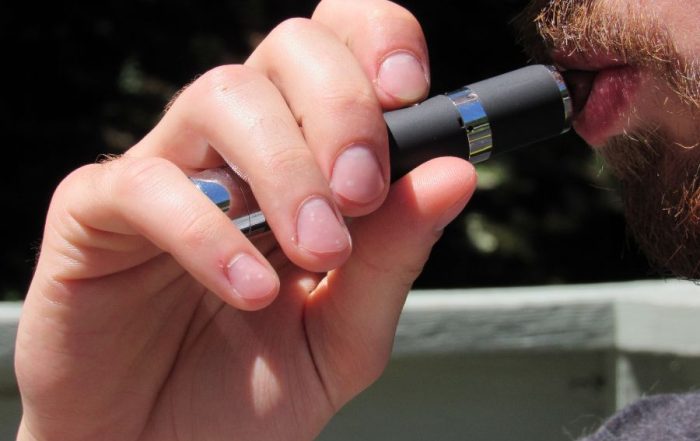What is Pink Cloud Syndrome in Recovery? Meaning, and What to Expect
If you’ve just begun your journey in recovery, congratulations! Whether you’re in some kind of addiction treatment program or you’re simply participating in a tried-and-true 12-step program, you’ve likely heard the term “pink cloud syndrome” thrown around a few times.
Pink cloud syndrome definition
In recovery, the term “pink cloud syndrome” refers to a recovery phase experienced by some individuals during their first 2-4 weeks of sobriety. During this time, recovering individuals feel a sense of optimism, euphoria, and a belief that everything is going well. It can be a positive and motivating feeling but may also lead to unrealistic expectations moving forward.
In this article, we’d like to discuss the pink cloud’s meaning, as well as examine why it happens and discuss the potential drawbacks of “falling off” the pink cloud in recovery.
Why we get a pink cloud in sobriety
The pink cloud phase of recovery generally refers to the first few weeks of sobriety, immediately after any acute withdrawal symptoms have begun to subside.
Take, for instance, the alcoholic or opiate addict leaving a detox facility – they are feeling better physically and they’ve been granted a new freedom. They have likely been introduced to 12-step solutions, and they feel as if they’ve got a new lease on life!
For many of us, the drug and alcohol free pink cloud phase feels glorious: we’re having fun sober, we’re meeting new people in recovery who are willing to help, and we’re beginning to see and admit to the mistakes we’ve made in the past. These are all great things!
The catch is that it’s common for newly sober individuals with pink cloud syndrome to feel as though this is just how addiction recovery is going to be moving forward. This expectation can lead to numerous pitfalls when our emotions begin to catch up to us, and it’s the main reason that so many people relapse between 3-4 weeks sober.
How long does the sobriety pink cloud last?
Though each person’s pink cloud syndrome timeline is a little different, we find that the pink cloud phase tends to last around three weeks.
Many folks in the recovery and drug counseling world have hypothesized as to why this is the case, and there may not be a single “correct” answer. However, if we had to guess, we’d say that it’s because this is generally how long it takes for an individual to become fully clean and sober.
Even if an individual has a singular drug of choice, almost everyone we come into contact with these days has been using multiple substances at some point in the last few months. Most commonly, almost everyone we meet has been using marijuana.
It’s well documented at this point that marijuana takes around 20-30 days to leave the system entirely. What this means is that the first 3-4 weeks of recovery, we’re still being affected by drugs and alcohol on some level.
Though we’re no longer engaging in the same destructive behaviors from the past, it takes 3-4 weeks to become truly, fully sober.
After this time, it’s typical for our emotions to “catch up,” and we begin to become haunted by old regrets from the past as well as fear of what the future holds.
It’s at this point where utilizing recovery tools becomes truly important.
Enjoy the pink cloud phase – but make progress, too!
We never discourage anyone who’s experiencing pink cloud syndrome – it’s a great time to feel alive, develop new connections in recovery, and learn to enjoy life without drugs.
However, it’s extremely important during this time to begin to utilize recovery tools. The recovery journey is beautiful over the long haul, but the first few months can be challenging once the pink cloud has worn off.
Since folks in this phase aren’t feeling burdened by regret and fear, it’s also a good time to pick a home group, select a sponsor, and get started on the steps!
If you’re experiencing pink cloud syndrome, enjoy yourself! But we also recommend you take the following actions some time in your first few weeks of sobriety:
- Get a sponsor, and start calling them (trying to do the 12 steps without a sponsor is generally a bad idea over the long haul)
- Get a home group (and maybe even a small service commitment)
- Begin your 90-in-90
- Get started on the first few steps of the 12 steps
Folks who have set themselves up accordingly for the road ahead are the ones who succeed. Remember, the most common initial relapse point is around 30 days of sobriety, and falling off the pink cloud is the primary reason for this phenomenon.
Falling off the pink cloud
When the pink cloud phase ends for someone, we generally refer to this phase as “falling off” the pink cloud. Perhaps you’ve already experienced some of the common symptoms of the pink cloud wearing off:
- Sudden painful memories often surface, seemingly out of nowhere
- We begin to feel agitated and annoyed by the people around us
- We start to wonder if we’ll ever get a life that we can love over the long haul
- Fears about money, family, jobs, and material possessions may surface suddenly
- Old mental health symptoms may arise, such as generalized depression, anxiety, or others
During this time, it may appear to others that things are going well; one of the common reasons we see for relapses when things are good.
What to do about it
If you’ve set yourself up properly, as described above, then great! Even if you haven’t, all is not lost. The solution is to keep coming back, continue to be honest about your cravings, fears, and insecurities, and begin to be of service to others.
Remember the saying: “I got high, but WE got sober.”
We can’t do it alone. Honesty with others, daily attendance at meetings, progress through the 12 steps, and a commitment to live one day at a time are the keys to relapse prevention through the first few months of sobriety.
Contrary to popular belief, relapse doesn’t have to be a part of recovery.
Before you know it, you’ll be picking up your 60 day or 90 day chip and things will be looking up. Hang in there, and remember not to take temporary for permanent. This, too, shall pass.







